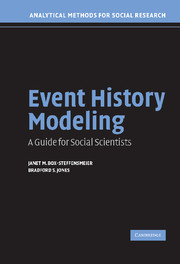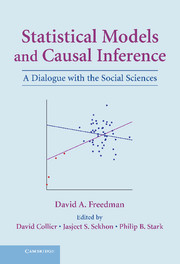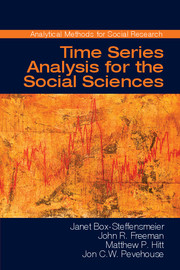Event History Modeling
Event History Modeling, first published in 2004, provides an accessible guide to event history analysis for researchers and advanced students in the social sciences. The substantive focus of many social science research problems leads directly to the consideration of duration models, and many problems would be better analyzed by using these longitudinal methods to take into account not only whether the event happened, but when. The foundational principles of event history analysis are discussed and ample examples are estimated and interpreted using standard statistical packages, such as STATA and S-Plus. Critical innovations in diagnostics are discussed, including testing the proportional hazards assumption, identifying outliers, and assessing model fit. The treatment of complicated events includes coverage of unobserved heterogeneity, repeated events, and competing risks models. The authors point out common problems in the analysis of time-to-event data in the social sciences and make recommendations regarding the implementation of duration modeling methods.
- Accessible to social science audiences who are interested in event history modeling (which is also referred to as survival, duration, and reliability modeling)
- Incorporates the latest research
- Extensive social science examples, along with code in popularly used programs
Reviews & endorsements
"Box-Steffensmeier and Jones have written a highly accessible and incredibly thoughtful introduction to survival analysis for the social scientist. I find Event History Modeling to be well suited for adoption both as a graduate and self study test. Highly recommended." --Tze Kwang Teo, University of Illinois at Urbana-Champaign, The Political Methodologist
Product details
April 2004Hardback
9780521837675
234 pages
229 × 152 × 17 mm
0.52kg
18 b/w illus. 36 tables
Available
Table of Contents
- List of figures
- List of tables
- Preface
- 1. Event history and political analysis
- 2. The logic of event history analysis
- 3. Parametric models for single-spell duration data
- 4. The Cox Proportional Hazards model
- 5. Models for discrete data
- 6. Issues in model selection
- 7. Inclusion of time-varying covariates
- 8. Diagnostic methods for the event history model
- 9. Some modeling strategies for unobserved heterogeneity
- 10. Models for multiple events
- 11. Political analysis and event history
- Appendix: software for event history analysis
- References
- Index.





